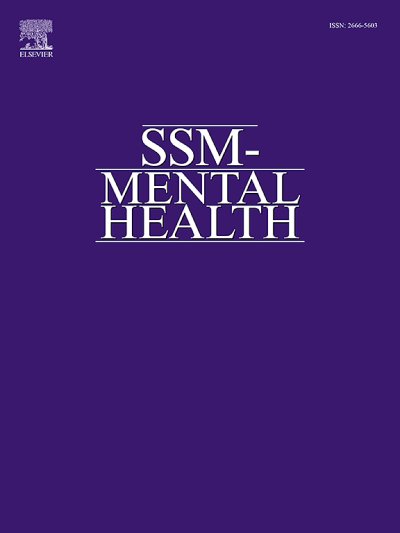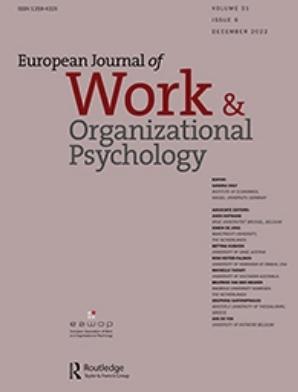Displaying 1 to 10 of 10
Introduction to the Working Well Maturity Framework
Tue, 11 Apr 2023
The rapid increase in the number of wellbeing frameworks available has given rise to a bewildering choice for organisations. The Working Well Maturity Framework was developed in response to calls from Affinity's Research Consortium, to develop a clear picture on how frameworks differ and to develop a...
Meta-synthesis of qualitative research on the barriers and facilitators to implementing workplace mental health interventions
Mon, 26 Dec 2022
SSM-Mental Health
Purpose: There has been a rapid increase in the number of mental health interventions implemented in the
workplace. The efficacy of these interventions has been mixed. The factors influencing implementation may offer
insights to why some interventions fail to be effective.
Method: We conducted a meta-synthesis...
Protocol For A Feasibility Randomised Controlled Study Of A Multicomponent Intervention To Promote A Sustainable Return-To-Work Of Workers On Long Term Sick Leave (PDF, 991 Kb)
Protocol For A Feasibility Randomised Controlled Study Of A Multicomponent Intervention To Promote A Sustainable Return-To-Work Of Workers On Long Term Sick Leave
Sat, 1 Jan 2022
Pilot and Feasibility Studies
The cost of sickness absence has major social, psychological, and financial implications for individuals and organisations. Return-to-work (RTW) interventions that support good quality communication and contact with the workplace can reduce the length of sickness absence by between 15 to 30 days. However,...
Impact Of Covid-19 On The L&D Profession: Perspectives From Independent Learning Practitioners. (PDF, 783 Kb)
Impact Of Covid-19 On The L&D Profession: Perspectives From Independent Learning Practitioners.
Mon, 22 Mar 2021
CIPD
The COVID-19 pandemic has dramatically shifted the way we learn. Learning and development practitioners have been challenged to step outside of their comfort zone, be curious and embrace new ways of delivering learning with high impact for the digital age. This longitudinal focus group study investigated...
What Outcomes Have Mindfulness And Meditation Interventions For Managers And Leaders Achieved? (PDF, 1.5 Mb)
What Outcomes Have Mindfulness And Meditation Interventions For Managers And Leaders Achieved?
Tue, 1 Jan 2019
European Journal of Work and Organizational Psychology
No systematic review had previously been conducted examining the benefits mindfulness or meditation interventions for leaders and managers. However, the literature suggested that such interventions would have a positive impact on leaders' own well-being, their leadership capability, their 'post-conventional'...
Developing Managers To Manage Sustainable Employee Engagement, Health And Well-Being - Phase Two (PDF, 664 Kb)
Developing Managers To Manage Sustainable Employee Engagement, Health And Well-Being - Phase Two
Tue, 21 Feb 2017
CIPD
Sponsored by the CIPD, Institution of Occupational Safety and Health (IOSH) and the Affinity Health at Work Research Consortium, Affinity Health at Work has conducted research to review all the evidence available about what affects the success of developing managers who support employee engagement, health...
Developing Managers To Manage Sustainable Employee Engagement, Health And Well-Being - Phase One (PDF, 2.6 Mb)
Developing Managers To Manage Sustainable Employee Engagement, Health And Well-Being - Phase One
Sat, 1 Nov 2014
CIPD
Sponsored by the CIPD, Institution of Occupational Safety and Health (IOSH) and the Affinity Health at Work Research Consortium, Affinity Health at Work has conducted research to review all the evidence available about what affects the success of developing managers who support employee engagement, health...
Preventing Stress: Promoting Positive Manager Behaviour Phase 4: How Do Organisations Implement The Findings In Practice? (PDF, 498 Kb)
Preventing Stress: Promoting Positive Manager Behaviour Phase 4: How Do Organisations Implement The Findings In Practice?
Mon, 25 Jul 2011
CIPD
Our research highlights the pivotal role that line managers play in workplace stress management. For employers to reduce and manage workplace stress effectively they need to ensure that managers demonstrate the skills and behaviours that allow them to manage their staff in ways that minimise work-related...
Developing Resilience: Research Insight (PDF, 497 Kb)
The overall aim of this report is to assist practitioners in understanding resilience and approaches to building resilience, as well as identifying gaps in these domains. Additional objectives include: to review interventions designed to build resilience offered both by practitioners and by the academic...
Line Management Competence: The Key To Preventing And Reducing Stress At Work
Tue, 1 Jan 2008
Strategic HR Review
Work-related stress is a major concern for employers, and the UK Health and Safety Executive has introduced Management Standards for employers to support them in managing stress in the workplace. Managers have a key role to play in minimizing stress-related risks for their staff. Management behaviour...
































